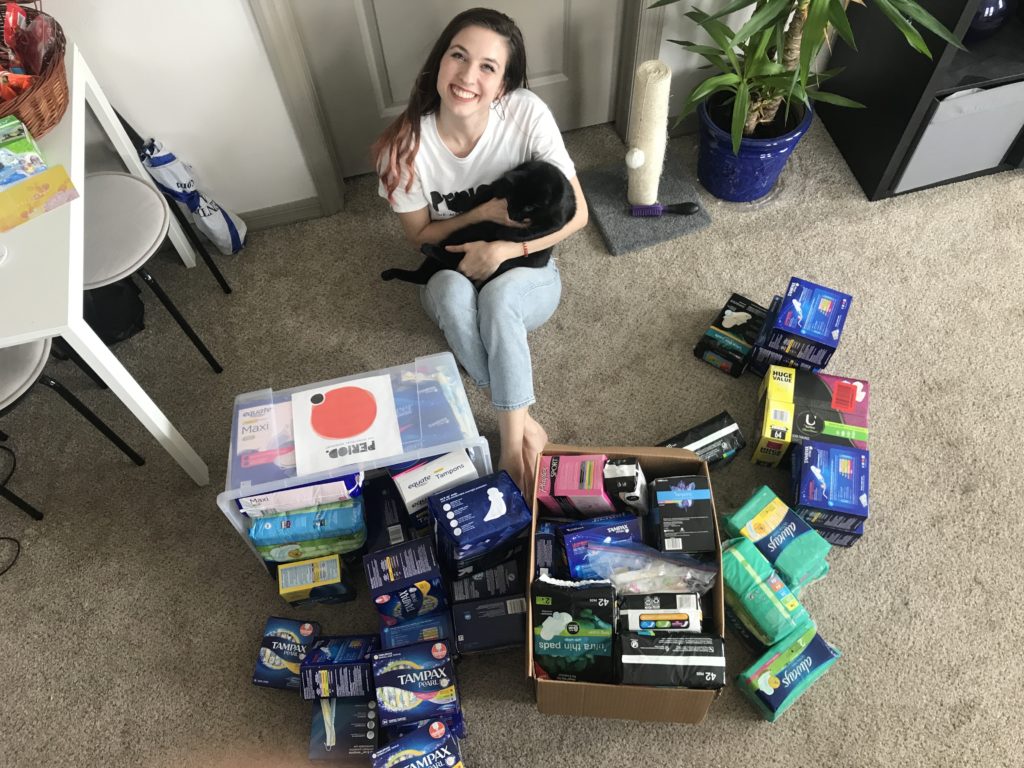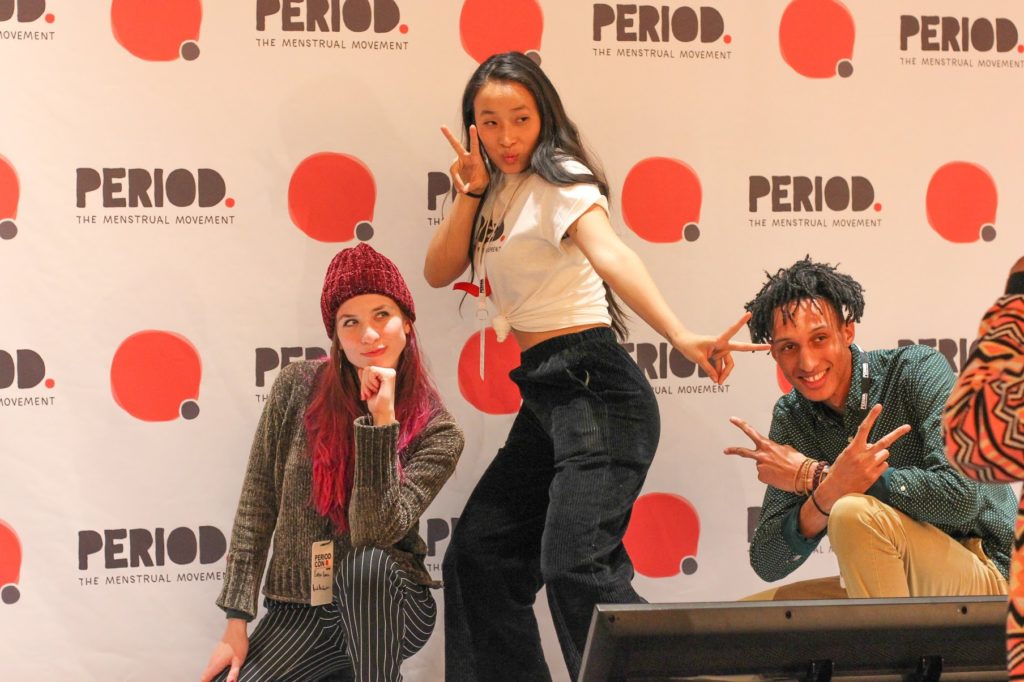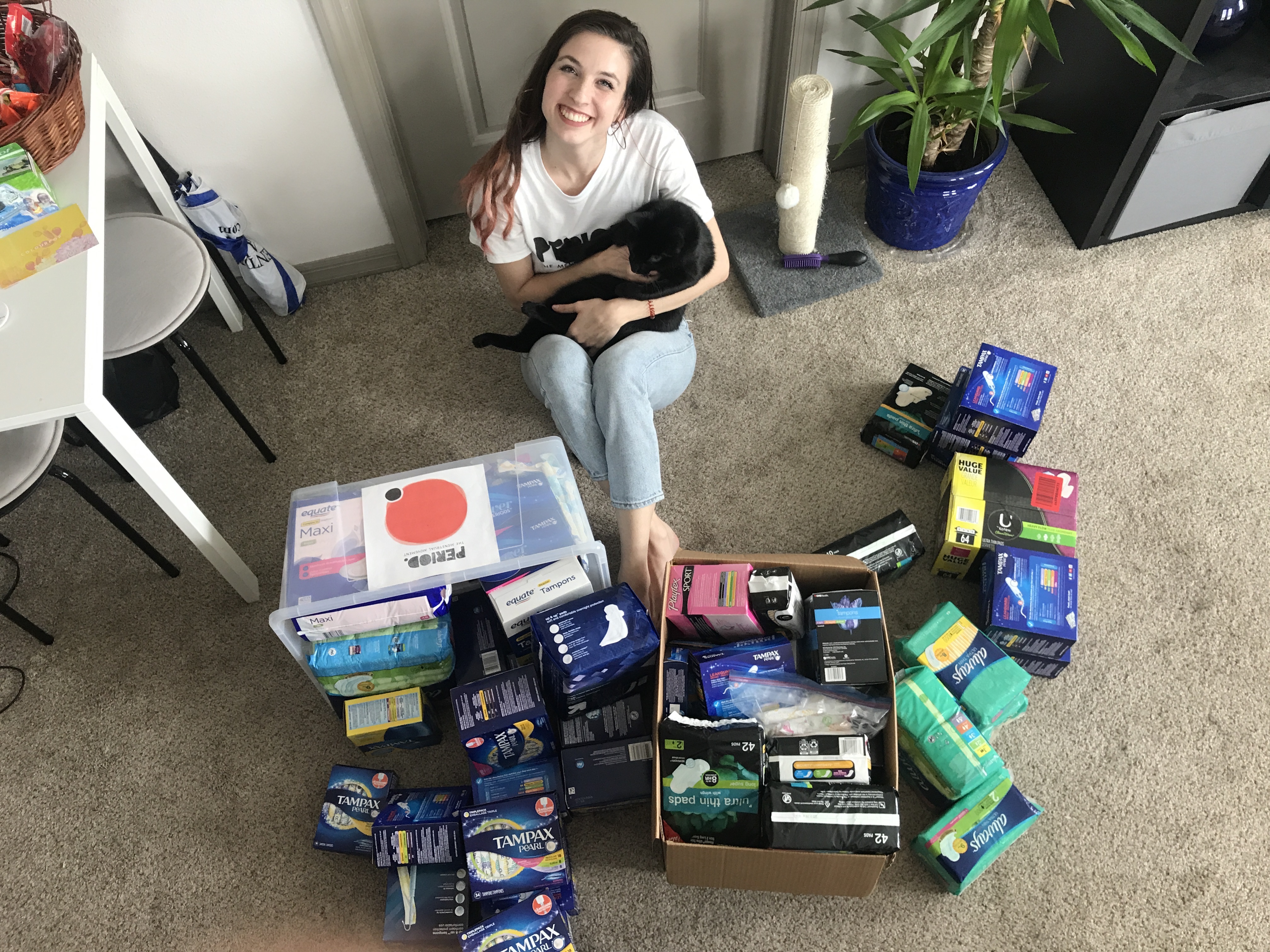
By Whitney Elfstrom
In three years, Evy Guerra has seen 12 doctors.
She’s had doctors cancel appointments and stop taking her calls. She’s had doctors refuse to give her birth control because of their religious beliefs. But, overwhelmingly, she’s had doctors ask her questions that you would never expect in an exam room.
“Aren’t you just so mad at Eve for taking a bite out of that apple? Then you wouldn’t have this problem.”
“You need to have babies as soon as possible.”
“Do you want to kill yourself?”
Guerra, a USF St. Petersburg alumna, was diagnosed with endometriosis in spring 2016 after seeing three doctors about the pain that surrounded her period.
Endometriosis is a chronic condition with no cure where tissue similar to the uterine lining grows outside the uterus and on other organs. It can develop anywhere from the outside of the uterus, to bowels, bladder, the appendix or in the diaphragm. This can cause severe pain for some women, among other side effects.
In January 2016, Guerra, now 22, had to leave class to go outside and lie on the floor due to pain. She went to the campus Wellness Center, where she was prescribed muscle relaxers and a painkiller. Then the doctor asked if anyone had ever said the word endometriosis to her.
“‘Please don’t say that,’” Guerra said. “I was like, ‘I don’t want to have that, please.’ But I was also in so much pain, I was crying and it was so bad. That’s when it started, and then it got worse.”
In college, she started to miss classes because of the pain, but she felt like she couldn’t tell professors that her period was the reason.
“That doesn’t fly,” she said, even though she was prescribed painkillers and told she shouldn’t leave her bed.
Instead, she told them that she was sick, and her absences started to accumulate. When her grades began to slip, someone told her about the Students with Disabilities Act, and she went to the disability center on campus, which gave her notes for her professors.
After that, Guerra said her pain began to speedball. That summer, she was an intern at the Miami 10 news station. On her third day, she got her period and spent the first half of her morning in piercing pain on the bathroom floor.
Since 2016, she has undergone two surgeries. The first one was in December 2016. Guerra said she was healthy for two and a half weeks until she went downhill again. She underwent her second surgery in July 2018.
She’s tried several hormonal methods, non-hormonal methods and different painkillers, which cause symptoms that range from throwing up to losing her vision. But Guerra said the treatment that helps her most is medical marijuana.
“Percocet will help, but it usually takes at least an hour to fully kick in or more. But (before I take) medical marijuana, I’ll be in bed with my knees to my chest, and I can’t get up,” Guerra said. “Then I put some oil under my tongue and within minutes, my body is relaxing more and it gets me out of bed so much quicker.”
Earlier this year, there was a problem with her medical card renewal, and she went a month without medical marijuana. She threw up 10 times in a row and found herself in the hospital, which showed her that she wasn’t able to go without it.
Pain led to passion
Unable to work for the past 18 months, Guerra said she found herself constantly reading memoirs by women in pain. Last fall, she Googled “books about periods” and came across “Period Power” by Nadya Okamoto.
Okamoto’s manifesto takes a deeper look at period products and period stigmas. The book also breaks down period poverty, which is the lack of access to period products, menstrual hygiene education, toilets, etc.
“She’s writing about women who can’t get access to a bathroom… or they’re stuck in one place for the whole week of their period… because they’re bleeding so much that they can’t move,” Guerra said. “And I thought, ‘If I was homeless, I wouldn’t survive my period.’
“I know my period is coming because I start to black out from pain.”
Guerra knew she wanted to get involved with Period Movement, a nonprofit organization that works to end period poverty and period stigma. She opened the Bradenton chapter in January. It’s one of 300 chapters nationwide that are dedicated to making “period packs,” which contain nine tampons and six pads, and donating them to local homeless shelters.
For her 22nd birthday this year, Guerra held her first Period donation party at Green Bench Brewing Co. She asked those who were considering bringing her a gift to instead donate a box of tampons or pads. A month later, Guerra’s friend, Devin, did the same for his birthday.
The two parties accumulated 1,031 pads and 1,990 tampons.
Guerra is working with HOPE Family Services in Bradenton. The shelter specializes in domestic abuse aid and actively works to provide period products to those who seek help.
Period Bradenton is made up of three USF St. Petersburg alumni; Guerra is the president, Ryan Callihan, Guerra’s boyfriend, is treasurer, and Nicole Carroll, their roommate.
Dream come true
In January, Guerra and Callihan traveled to New York for Period Con after Guerra and all three of her sisters entered an Instagram contest to win tickets. Guerra was in Macy’s with her mom when she found out that she and her younger sister both won tickets. She was overjoyed at first, but then she started to cry and said, “It’s not like I could ever go.”
After some research and a pep talk from her dad, Guerra found an Airbnb for $67 a night, her dad let her use his airline miles, and Callihan agreed to tag along.
“My suitcase was tons of layers, every kind of medicine I might need and every kind of gluten-free dietary snack, (it was) like we were prepping for war,” she said. “So we had two suitcases, a wheelchair, and we were psyched.”
At Period Con, speakers covered topics from endometriosis to how to talk to your doctor about period pain. At the convention, Guerra said she learned that there is no scale considered “normal” or “abnormal” for the amount of pain or blood that follows your period.
“Women are going to the doctor and saying, ‘I’m bleeding out on my period.’ And (doctors are) going, ‘Yeah, but it’s a period, it’s normal,’” Guerra said.

One of the doctors at the conference told Guerra that he went through medical school, and the curriculum didn’t mention periods once. Guerra thought, “That’s why all of this is happening to me.”
“In one sentence, that’s what is wrong with women’s health. They don’t even care to put it in the curriculum,” she said. “They don’t care unless you’re pregnant, or unless you’re trying to get pregnant.”
The chapter works to not only provide period products to those in need but also to educate people on menstruation by bringing periods into conversations to help end the stigma around it.
For Guerra, she wishes more people realized that those who are chronically ill aren’t exaggerating their pain.
“It’s like we’re fighting a war in our bodies at all times — nothing about it is dramatic,” she said. “I know my body best. People who are sick know their body best.”
To donate or get involved, contact Period Bradenton at period.bradenton@gmail.com or follow the Instagram @period.bradenton for more updates.
Disclosure: I have been close friends with Guerra for the past three years.



